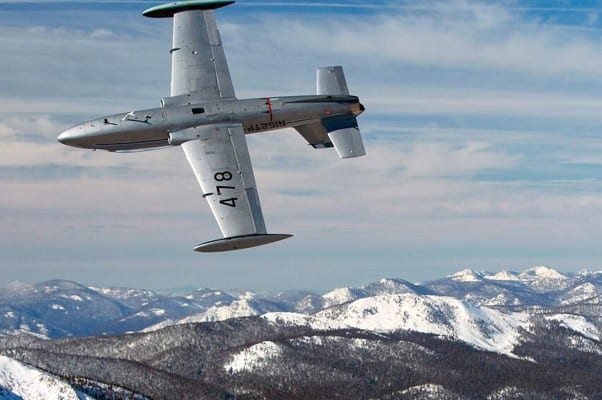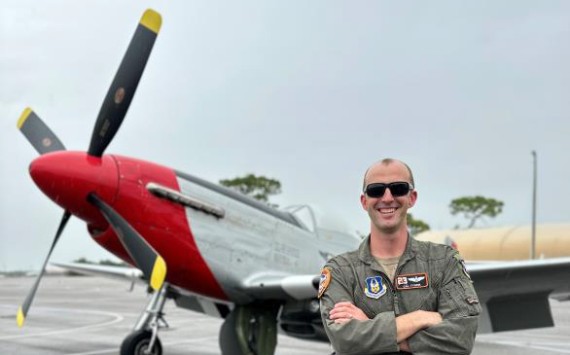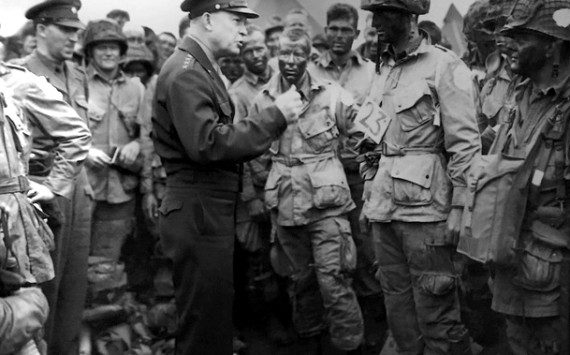by Cathy Hansen, special to Aerotech News
Private and corporate pilots are coming to Mojave Air and Space Port to attend the URRT program at Flight Research.
According to the Flight Research website, “Since 1981, Flight Research Test Pilot Instructors have been teaching Upset Recognition Recovery Training in jets, pistons, turboprops and helicopters. Designed to take pilots to an advanced stage of learning by incorporating academics from our flight test syllabus, Flight Research URRT teaches about aircraft certification testing, limitations and how these relate to aircraft capability and performance in the air. Pilots learn lifesaving recovery techniques IN FLIGHT and AT ALTITUDE, preparing pilots for in-flight situations where the majority of aircraft accidents and fatalities occur due to pilot recognition failure and/or improper recovery procedures.”
Bill Korner, Flight Research Chairman & CEO said in a video online, “Simulators might act like a real airplane, but there is not emotion to it. You get upside down in a real airplane, there’s emotion to it. You will never forget it.”
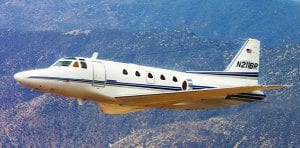
He also stated, “If you are flying along and get into an upset condition and you haven’t been trained for it, instinctively, most of the time, you will do the wrong thing.”
“Loss of control in flight is the number one cause of accidents worldwide,” Scott Glaser, Flight Research vice president of Operations, said at a Plane Crazy Saturday presentation in 2016. “It is documented by the National Transportation Safety Board, the Federal Aviation Administration and other aviation regulatory agencies worldwide,” he said.
https://twitter.com/Aerotechnews86/status/1391880339266555908
“We believe our Upset Recovery Training program helps save lives,” Glaser said. “Our program teaches pilots to recognize a departure from regular controlled flight. We teach methods to safely recover from these conditions.”
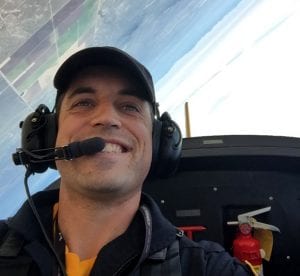
“The Flight Research URRT aircraft have been carefully selected, certified, and maintained for this training. The North American Sabreliner is a business jet with military pedigree and outstanding stall characteristics allowing pilots to maneuver an airplane very similar to their home aircraft while learning to recognize and recover from upsets. The Aermacchi Impala is a heavier, fully aerobatic training jet with handling qualities similar to transport jets. As the military says, “Train like you fly, fly like you train!” is found on the Flight Research website.
A Flight Research student was asked to describe his experience with the Upset Recovery Training and he stated in a video, “The course is superb and I believe the principles you guys are teaching are universal, and that is what the advantage is. Whether you’re flying a Gulfstream IV, a Piper Cherokee, the Sabreliner or an Impala, the principles stay the same. You guys hit them hard, you hit them fast and the principles are drilled into you. The confidence building in the pilot is phenomenal, where I come away and I know I’m a better pilot right now. I am absolutely better equipped to handle an upset. I do feel that I am a much more proficient pilot. It’s a great course and I recommend it for all pilots, whether you are flying a small privately owned two-seater or up to a 747, this course is fantastic!”
According to a website video, a corporate pilot being interviewed at Flight Research said, “Flight Research offers a different view on their training from what you get in Flight Safety and other courses.” Another corporate pilot stated, “They teach you to unload the aircraft, control your speed and recover without overstressing the aircraft.”
“To be able to go out and perform the upsets in jet aircraft they use to train these upsets, really gives you the confidence and the muscle memory,” said another pilot.
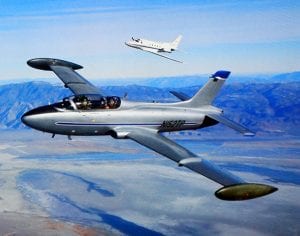
Wake turbulence, crossing jet streams at altitude or wind shear can cause an upset scenario. Pilots relay experiences that happened while flying professionally and they were thankful to have had the training received from Flight Research in Mojave and felt better prepared for any upset scenarios.
“Flight safety simulator training does not give you the actual experience of feeling the g’s, and the air loads on the flight controls,” said another pilot. “You just can’t replicate in a simulator the physiological experiences and the apprehension that you have when you know you are in a real aircraft and not in a simulator.”
“Upset Recovery Training is worth the investment 10-fold,” said one pilot. “The value of training far exceeds the cost.”
“I think you need to consider, first of all, the safety of your passengers, protecting the investment that people have in their airplanes and saving lives,” another pilot stated.
According to their website, Flight Research URRT meets all FAA, EASA, and ICAO UPRT compliance standards. Catering to any professional pilot’s training needs, Flight Research training is customizable and versatile. It is a necessary part of any safety and training program as the most robust and comprehensive upset prevention training in the world.
In an AOPA video about Flight Research URRT, Scott Glaser said, “One of the most rewarding times is when you get the phone call from a pilot (a former student) and he says, “I was climbing out behind a 747 and I found myself in a ‘wake upset’ and I remembered your training and I remembered UTAP and recovered the airplane.” There is just no greater feeling in the world,” said Glaser.
Upset Recovery Training will give pilots the opportunity to experience inflight upset with real gravitational forces, vestibular excitation and mental stress that can only be delivered in a plane; further building upon FlightSafety’s simulation programs that replicate scenarios which cannot be safely accomplished in an aircraft, such as very low-level stall events. Using technology and the aircraft provides the most thorough training possible against loss of in-flight control, the single greatest cause of fatal aviation accidents for more than a decade.
“We share a mutual safety obsession with Flight Research, so working with them to develop this enhanced upset recovery training makes perfect sense,” said Brad Thress, president and CEO of FlightSafety International. “This innovation to upset recovery training demonstrates FlightSafety International’s commitment to providing the best in immersive training and preparing aviators who are capable and confident in every situation.”
“As the leading provider of inflight upset recognition and recovery training we are very pleased to be partnering in joint upset recovery training with FlightSafety, the leading provider of simulator-based training,” said Bill Korner CEO of Flight Research. “Because we share a strong commitment with FlightSafety for innovative and state of the art training which better prepares pilots and advances the safety of flight, this is a natural fit for us and demonstrates our continuing focus on training excellence for today’s aviators.”
About FlightSafety International
FlightSafety International is the world’s premier professional aviation training company and supplier of flight simulators, visual systems and displays to commercial, government and military organizations. The company provides training for pilots, technicians and other aviation professionals from 167 countries and independent territories.
FlightSafety operates the world’s largest fleet of advanced full-flight simulators at Learning Centers and training locations in the United States, Australia, Brazil, Canada, China, France, Hong Kong, India, Japan, Norway, South Africa and the United Kingdom.
About Flight Research, Inc.
Aerospace Professionals Since 1981 – Flight Research, Inc. is the leading provider of advanced pilot training, test pilot education, flight test services, and human spaceflight training to advance the safety and capability of the aerospace industry. With a fleet of more than 40 aircraft including supersonic jets, helicopters, turboprops, piston trainers and business jets, Flight Research, Inc. provides services to individuals, flight departments, governments, aircraft manufacturers, and Advanced Aircraft Mobility pioneers. Flight Research is based at the Mojave Air and Space Port in Southern California.






